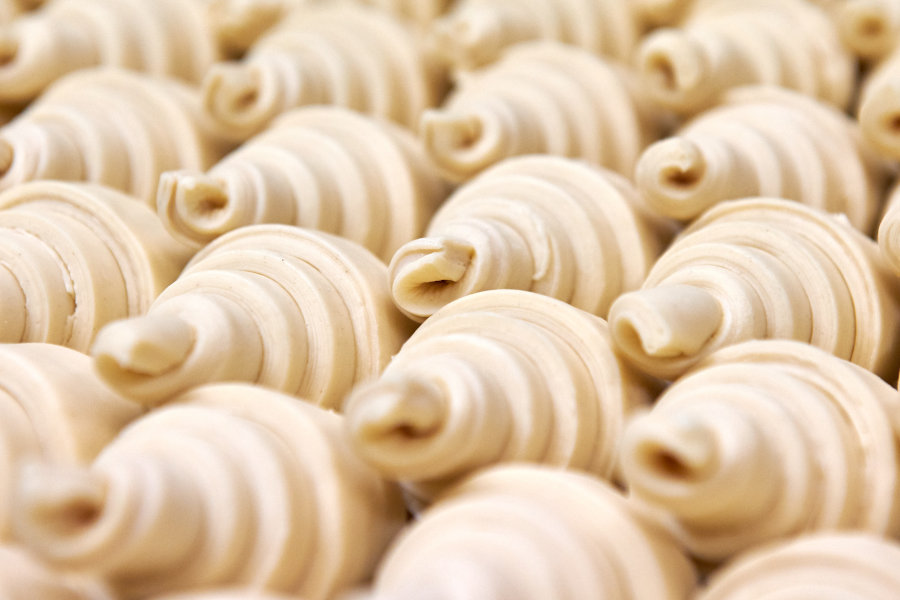From Flour to Flaky: A FAQ on Croissant Ingredients and Techniques

What type of butter should I use for this croissant recipe?
For a traditional croissant recipe, it’s best to use a high-quality unsalted butter with a high-fat content (at least 82% butterfat). The taste of the butter significantly impacts the overall flavor of the croissant. Butter should neither melt rapidly nor be excessively firm when rolling out puff pastry. It should be pliable.
How long does it take to proof the croissants?
Allow the shaped croissants to proof, usually for 1.5 to 2.0 hours, depending on the room temperature. The ideal proofing temperature is 76ºF to 83ºF (25°C to 28.3°C). The croissants should nearly double in size and become noticeably puffy. Gently press a finger on the surface of a croissant. They are ready for baking if it springs back slowly and leaves a slight indentation. If it springs back quickly, they need more time to proof.
How can I ensure that the croissant layers remain flaky and airy?
To ensure flaky and airy layers, handle the dough gently to avoid compressing the layers, and chill the dough between folds. This helps maintain distinct layers and prevents butter from melting prematurely.
How long do freshly baked croissants last at room temperature?
Croissants typically retain their optimal freshness for 1 day at room temperature. After this period, their texture and taste may begin to degrade.
Are there any creative ways to serve croissants with beverages?
Pair your croissants with an espresso or hot chocolate, served in a small glass or espresso cup. Offer additional accompaniments such as whipped cream, cinnamon sticks, or flavored syrups for a personalized touch.
Can I refrigerate baked croissants to extend their shelf life?
Refrigerating croissants is not recommended, as doing so may compromise their texture, resulting in a less flaky pastry. Always store in a cool, dry area at room temperature for best results.
Can croissants be frozen?
Yes, freezing unbaked croissants is an effective method for long-term storage. Place them in an airtight container or freezer bag. Store in the freezer for up to 2 weeks.
How do I defrost frozen croissants without compromising their quality?
To properly defrost, remove the croissants from the freezer and allow them to thaw at room temperature or place the croissants inside a dough proofer.
What are some unique methods to plate croissants for an attractive presentation?
Incorporate visual elements like a dusting of powdered sugar, a drizzle of chocolate sauce, or fresh fruit garnishes such as strawberries, raspberries, or mint leaves. Arrange croissants creatively by stacking, fanning, or creating a pattern on the plate.